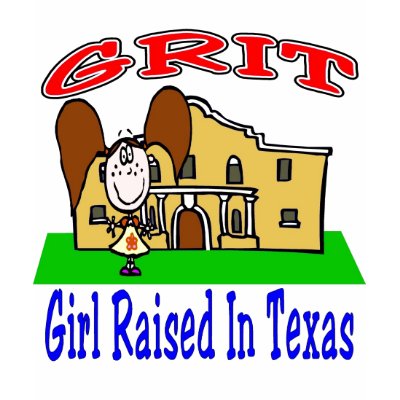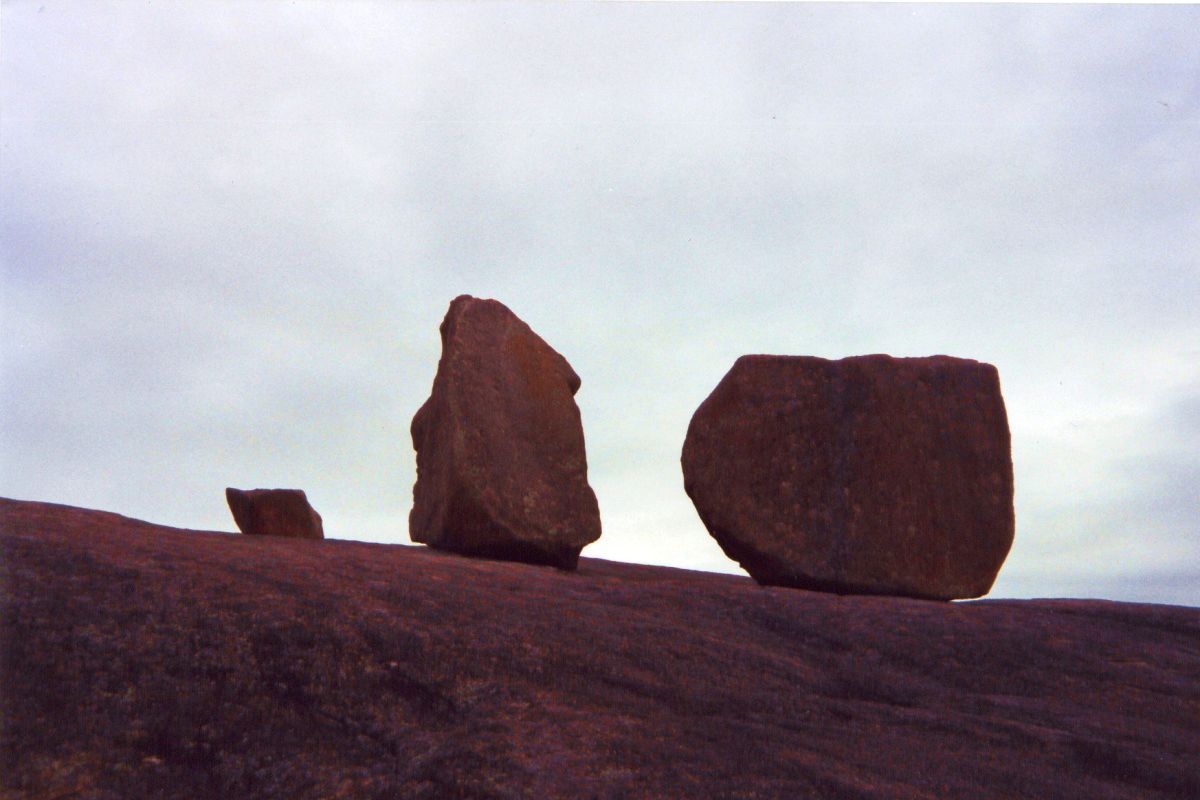Blue Highways: Western Crockett County, Texas
Unfolding the Map
Click on Thumbnail for MapLet's pull off the side of the road for a minute in a remote and barren area of West Texas. Turn off the engine and let the van cool. The wind blows gently against the van, but we'll walk out and away and begin to see and really listen to what is around us. We'll find life, nature, the universe and everything and we'll be fully aware of it as it begins to seep into our consciousness the longer we stay, watch and listen. The road beckons, but for a moment, this is where we need to be. Click on the map thumbnail to learn where it is.
Book Quote
"Driving through the miles of nothing, I decided to test the hypothesis and stopped somewhere in western Crockett County on the top of a broad mesa, just off Texas 29. At a distance, the land looked so rocky and dry, a religious man could believe that the First Hand never got around to the creation in here. Still, somebody had decided to string barbed wire around it.
"No plant grew higher than my head. For a while, I heard only miles of wind against the Ghost; but after the ringing in my ears stopped, I heard myself breathing, then a bird note, an answering call, another kind of birdsong, and another: mockingbird, mourning dove, an enigma. I heard the high zizz of flies the color of gray flannel and the deep buzz of a blue bumblebee."
Blue Highways: Part 4, Chapter 8
 Vista in Crockett County, Texas. Is this similar to what William Least Heat-Moon saw when he pulled off the road? Photo at behrensranchsales.com. Click on photo to go to site.
Vista in Crockett County, Texas. Is this similar to what William Least Heat-Moon saw when he pulled off the road? Photo at behrensranchsales.com. Click on photo to go to site.
Western Crockett County, Texas
I suppose this post is an extension of the last post on quests, in a way. I was struck by William Least Heat-Moon's (LHM) quote above where he turns off the road in a remote part of Texas (Google Earth image is my guess of the location) just to see what was there. It takes him a while to clear his head of the ringing in his ears from the motor of Ghost Dancing and the other road sounds while he drives. Once that happens, he really begins to see and hear what's there. What he begins to see and hear are the sounds of life all around him. It reaffirms that even in the most remote places, the planet is alive and we simply have to open our senses to it to understand that life on the deepest of levels.
I had a similar experience myself, many miles south of Crockett County. I may have briefly written about this before but I'll write about it again because it was a very important and spiritual moment for me.
My wife and I had made a trip to Big Bend National Park. It became one of our favorite places to go because of it's variety and some special moments we had there. On the western side of the Chisos Mountains, the road drops precipitously off a mesa down to a desert plain below. From the top of the mesa, one can see nothing but the desert and little speckles of desert plants. But as one looks, the eye is arrested by the site, almost directly in the center of the plain, a large cottonwood tree. It is so large and out of place that one cannot gaze on it and wonder why it is there.
My wife and I took the Chimneys Trail to some rock formations and the direction was toward this tree. I convinced her to see if we could reach the tree but after about a half hour of hiking across desert we realized that the distance was deceiving. Reluctantly, I turned away.
Some months later, I was offered to go on a weekend camping trip with a colleague to Big Bend again. He liked to hike, so I told him about the tree. He was game to try. We arrived near Big Bend one evening, and slept in the car by the side of the road, and in the morning made the drive to the Chimneys Trail. We set off down the trail in the morning. The desert was quiet, as if it were awaiting the sun with trepidation, and all the animals were in their holes to sit out the heat of the day. When we reached the Chimneys, we set off across desert.
My quest was to reach the big tree, because it was there. And in fact, the quest became almost like the hopeless quests one reads about in literature. After about an hour of hiking we reached a shallow arroyo and went across. Then after 15 minutes, another arroyo, a little deeper. This pattern continued. The next arroyo was deeper still, and harder to find a way out of.
Five arroyos we crossed, with the last being the deepest. It was like a small canyon. Every time we would crest an arroyo, the tree stood beckoning in the distance, a shimmering green beacon. The last arroyo was very near the tree, and it almost took us a half hour to find a way up the other side and out. When we reached the top, there was the tree.
But again, obstacles. The tree was surrounded by the thorniest, impenetrable desert brush I have ever encountered. We looked and looked around this thorny hedge but could not find a way through. I was about to dejectedly give up when on a whim, I went to the edge of the arroyo. The tree was right at the edge of the dropoff, and there, perilously close to the drop, was a small trail that went through a little tunnel in the brush and to the base of the tree! We made it!
We sat under the tree. The shade was nice and it was cool under the tree in the mid-day heat. We looked out over the arroyo which stretched away on each side of us. We were a little hyped up from our exertions but slowly, as my companion's eyes started to droop and he began to nap, and I became more attuned to our surroundings, I started to experience, and I mean really experience, the small ecosystem sustained by that tree all around me. While walking through the desert, all I could hear was wind. But under that tree, I realized I could hear not only wind rustling the cottonwood's leaves above me, but also the occasional drip of water condensing off the leaves. I could hear insects of all kinds buzzing nearby. It was quiet, punctuated only by my companion's occasional snore. The tree literally buzzed, there in the emptiness and heat of the desert, with palpable life. Because of it, I don't think I ever felt more alive.
A small piece of bark lay on the ground next to the trunk. I took it and put it in my pocket. I still have it to this day. We stayed about an hour, and then refreshed, and with new life, we set back on our trek to the car. I have no idea how far we hiked that day, but I know that for one hour, it was one of the few times in my life I was not distracted by anything and was fully engaged in my environment. In a way, I had undertaken a quest, reached my goal, and found enlightenment from whatever you may call it. God? Nature? The universe? Whatever it was, I was reminded that there are things that are more beautiful and more powerful than me.
I'd like to think that, on top of a broad mesa in western Crockett County, that LHM experienced something similar. Just after the quote above, he takes an inventory of the life that he can identify in what is supposed to be "barren" land. He finds a lot of life around him. He remarks that even though some might call it a land that God forgot, that someone still put barbed wire around it. Barrenness is only an illusion, in my experience. We can find importance and meaning, and even the trace of those who have gone before, pretty much wherever we go.
Musical Interlude
Here is an extended set of Lubbock music legends The Flatlanders. The song I really wanted in this Texas musical interlude was If You Were a Bluebird, but I couldn't find a decent video of it being performed - either the song was cut off at the beginning or the sound was bad. So, If You Were a Bluebird is at the end of this video. Despite its length, it's worth watching Joe Ely, Butch Hancock and Jimmie Dale Gilmore tell a story and you get two songs for the price of one - which is this case is free! So what's not to like
If you want to know more about Western Crockett County
Crockett County
Texas State Historical Association: Crockett County
Wikipedia: Crockett County
Next up: West of the Pecos, Texas




 Friday, February 18, 2011 at 11:43AM
Friday, February 18, 2011 at 11:43AM



